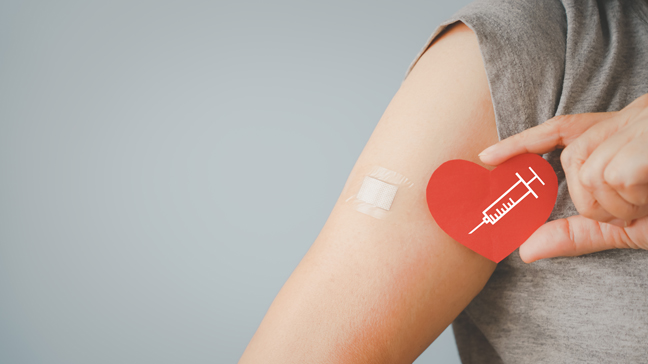- Diseases
- Acoustic Neuroma (14)
- Adrenal Gland Tumor (24)
- Anal Cancer (66)
- Anemia (2)
- Appendix Cancer (16)
- Bile Duct Cancer (28)
- Bladder Cancer (68)
- Brain Metastases (28)
- Brain Tumor (228)
- Breast Cancer (716)
- Breast Implant-Associated Anaplastic Large Cell Lymphoma (2)
- Cancer of Unknown Primary (4)
- Carcinoid Tumor (8)
- Cervical Cancer (154)
- Colon Cancer (164)
- Colorectal Cancer (110)
- Endocrine Tumor (4)
- Esophageal Cancer (42)
- Eye Cancer (36)
- Fallopian Tube Cancer (6)
- Germ Cell Tumor (4)
- Gestational Trophoblastic Disease (2)
- Head and Neck Cancer (6)
- Kidney Cancer (124)
- Leukemia (344)
- Liver Cancer (50)
- Lung Cancer (288)
- Lymphoma (284)
- Mesothelioma (14)
- Metastasis (30)
- Multiple Myeloma (98)
- Myelodysplastic Syndrome (60)
- Myeloproliferative Neoplasm (4)
- Neuroendocrine Tumors (16)
- Oral Cancer (100)
- Ovarian Cancer (170)
- Pancreatic Cancer (166)
- Parathyroid Disease (2)
- Penile Cancer (14)
- Pituitary Tumor (6)
- Prostate Cancer (144)
- Rectal Cancer (58)
- Renal Medullary Carcinoma (6)
- Salivary Gland Cancer (14)
- Sarcoma (236)
- Skin Cancer (294)
- Skull Base Tumors (56)
- Spinal Tumor (12)
- Stomach Cancer (60)
- Testicular Cancer (28)
- Throat Cancer (90)
- Thymoma (6)
- Thyroid Cancer (98)
- Tonsil Cancer (30)
- Uterine Cancer (78)
- Vaginal Cancer (14)
- Vulvar Cancer (18)
- Cancer Topic
- Adolescent and Young Adult Cancer Issues (20)
- Advance Care Planning (10)
- Biostatistics (2)
- Blood Donation (18)
- Bone Health (8)
- COVID-19 (360)
- Cancer Recurrence (120)
- Childhood Cancer Issues (120)
- Clinical Trials (622)
- Complementary Integrative Medicine (24)
- Cytogenetics (2)
- DNA Methylation (4)
- Diagnosis (226)
- Epigenetics (6)
- Fertility (62)
- Follow-up Guidelines (2)
- Health Disparities (14)
- Hereditary Cancer Syndromes (122)
- Immunology (18)
- Li-Fraumeni Syndrome (8)
- Mental Health (118)
- Molecular Diagnostics (8)
- Pain Management (64)
- Palliative Care (8)
- Pathology (10)
- Physical Therapy (18)
- Pregnancy (18)
- Prevention (888)
- Research (388)
- Second Opinion (74)
- Sexuality (16)
- Side Effects (602)
- Sleep Disorders (10)
- Stem Cell Transplantation Cellular Therapy (216)
- Support (404)
- Survivorship (322)
- Symptoms (186)
- Treatment (1770)
Cancer and COVID-19: What protection do antiviral therapies provide?
3 minute read | Published July 19, 2022
Medically Reviewed | Last reviewed by an MD Anderson Cancer Center medical professional on July 19, 2022
Last updated Jan. 31, 2023
If you or someone you know has had COVID-19 recently, you may have heard of PAXLOVID. Maybe you’ve even heard about a so-called COVID-19 rebound in people who’ve taken this antiviral therapy.
So, what is PAXLOVID and why does the Centers for Disease Control and Prevention (CDC) recommend it for people who are immunocompromised? We asked Chief Infection Control Officer Roy Chemaly, M.D., what patients with cancer need to know about the antiviral treatment for COVID-19.
What is PAXLOVID, and who can receive it?
PAXLOVID is the brand name for a combination antiviral medication that can lessen symptoms in patients who have mild or moderate COVID-19. It is intended for those who are in the early stages of infection and are at risk of getting severely worse.
Patients with cancer are eligible to receive PAXLOVID with a prescription from their doctor and they will need to start it within 5 days of the onset of their COVID-19 symptoms. If you are in the hospital, more aggressive therapy may be needed to help you fight the infection.
How does PAXLOVID work to fight an infection?
PAXLOVID contains nirmatrelvir, which works to inhibit the SARS-CoV-2 virus from replicating in the body. It also contains ritonavir, which boosts the effects of nirmatrelvir, helping it work better. The combination of these antiviral medications helps reduce the risk of hospitalization for people who have mild-to-moderate COVID-19.
What are the side effects of PAXLOVID?
Some people report having a metallic or otherwise altered taste in their mouth when taking PAXLOVID. Your doctor also should consider the health of your kidneys and liver before prescribing it. For most people, reported side effects have been mild.
If you have cancer, your doctor will consider all of the medications you are taking to ensure there are no interactions between medicines used to treat COVID-19 (such as PAXLOVID or dexamethasone) and cancer-related therapies like prophylactic antimicrobials and other medicines.
Why do some people need a second round of PAXLOVID treatment?
PAXLOVID is the first oral antiviral medication to be authorized for emergency use by the Food and Drug Administration (FDA) for the treatment of COVID-19. That makes it an investigational medication. Your doctor may prescribe it based on your COVID-19 symptoms and response to the medication.
Some people experience a relapse of COVID-19 – sometimes called a COVID-19 rebound – even after taking an entire course of PAXLOVID. For instance, after Dr. Anthony Fauci tested positive for COVID-19, he received two courses of PAXLOVID to help him stay out of the hospital.
What else can I do to protect myself?
Vaccination should be considered the first line of prevention against COVID-19. However, some patients with cancer may be unable to mount a protective response with COVID-19 vaccines and remain at risk for severe COVID-19 should they become infected.
For people who are eligible to receive it, PAXLOVID should be a treatment option they discuss with their doctor.
Schedule your COVID-19 vaccine or booster at MD Anderson.
Related articles
Who needs a second COVID-19 booster shot?
Mixing and matching COVID-19 booster shots: Should you do it?
Recovered from COVID-19: Now what?
Related Cancerwise Stories

Patients with cancer are eligible to receive PAXLOVID with a prescription from their doctor and they will need to start it within 5 days of the onset of their COVID-19 symptoms.
Roy Chemaly, M.D.
Chief Infection Control Officer





